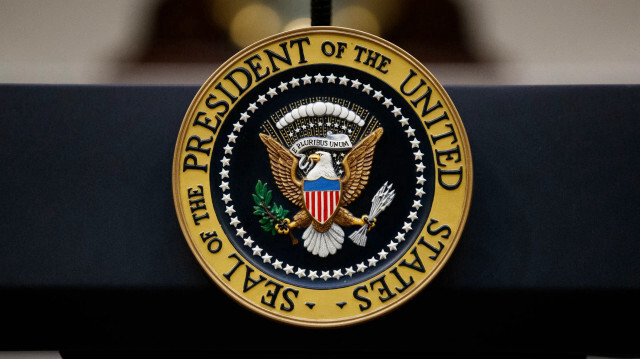
'Where have they been for a year? For a year, the world has been calling on Hezbollah to stop the attacks across the border into Israel,' says spokesman
The US State Department reacted Tuesday to the support of Hezbollah for efforts by Lebanon's Parliament Speaker Nabih Berri to reach a cease-fire with Israel.
"Where have they been for a year? For a year, the world has been calling on Hezbollah to stop the attacks across the border into Israel," spokesman Matthew Miller told reporters. "And for a year, Hezbollah said they wouldn't do it unless there was a cease-fire in Gaza.”
Hezbollah Deputy Secretary-General Naim Qassem said in a televised speech that the Lebanese group has full confidence in Berri and supports his political efforts to reach a truce.
Miller said Hezbollah had refused to agree to a cease-fire for a year and it has defied calls from the international community.
"Hezbollah is on the back foot and is getting battered," he said. "Suddenly they changed their tune and want a cease-fire. I think it's not surprising, given the situation they find themselves in. We continue to ultimately want a diplomatic solution to this conflict.”
Berri and caretaker Prime Minister Najib Mikati held talks with a host of Western officials, including French Foreign Minister Jean-Noel Barrot, to help ease tensions between Lebanon and Israel and implement UN Security Council Resolution 1701, which ended the 2006 Israeli war on Lebanon.
The talks focus on an initiative for a four-week truce that includes a cessation of hostilities between Hezbollah and Israel, and reaching a complete cease-fire. It also includes a reconstruction plan and the return of displaced residents to their homes, and the demarcation of the border.
- Conversations with 'different players inside Lebanon'
Miller said Hezbollah's forces in southern Lebanon refused to fully implement resolution 1701, which he said was supposed to put down the group's arms, and withdraw beyond the Litani River.
"And over 18 years since that resolution was implemented, they refused to do either of those things. In fact, not only they refuse to do them, they increased their arms just over the border from Lebanon," he said.
Miller reiterated US support for Israel's efforts to degrade Hezbollah's capabilities but stressed that a diplomatic resolution is ultimately the only solution that will ensure long-term security for the Israeli and Lebanese people.
He said Washington has conversations with several different players inside Lebanon.
"And not only are we having conversations with them, our allies and partners from inside the region and from outside the region are having those conversations, and oftentimes we have sort of years to talk to individuals inside Lebanon," added Miller.
Israel mounted massive airstrikes across Lebanon against what it claims are Hezbollah targets since Sept. 23 that have killed more than 1,250 victims, injured 3,618 and displaced more than 1.2 million.
The aerial campaign was an escalation in a year-long cross-border warfare between Israel and Hezbollah since the start of Tel Aviv's brutal offensive on the Gaza Strip that has killed nearly 42,000 victims, mostly women and children, since a Hamas attack last year.
At least 2,083 people have since been killed and 9,869 others injured in Israeli attacks in Lebanon, according to Lebanese authorities.
Despite international warnings that the Middle East region was on the brink of a regional war amid Israel's relentless attacks on Gaza and Lebanon, Tel Aviv expanded the conflict by launching a ground invasion into southern Lebanon on Oct. 1.

